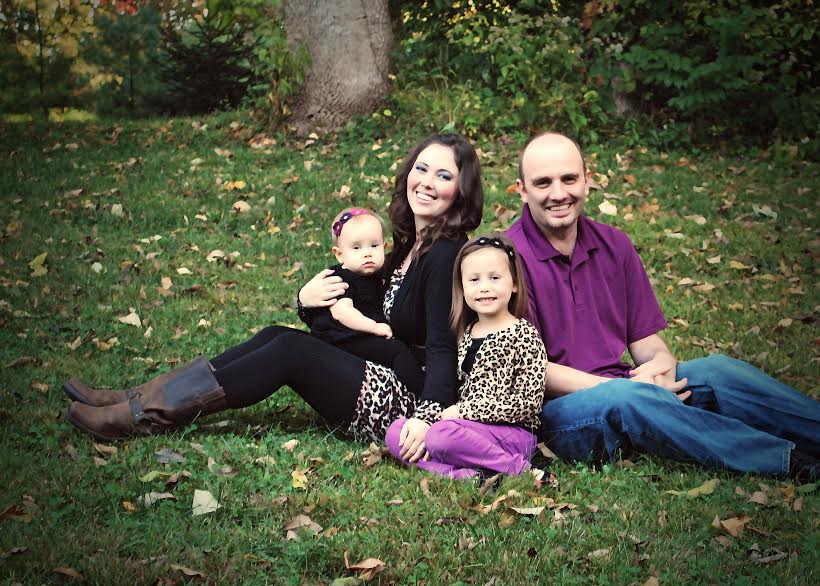Want more? You might also like:
Success Story: Curing My Patient’s Lupus, Leaky Gut, Depression, Brain Fog….Starting at the Gut
I Was the Mom Missing Out on Social Events Because of Migraines, Chronic Pain, Depression…Until I Had a Nutritional Awakening
Can’t Sleep? These 4 Habits Will Change That Fast
The Top 5 Things Every Man Should Do for His Health
Note: PLEASE consult with your doctor before making any changes to your diet or medications. The material on this site is provided for educational purposes only, and is not to be used for medical advice, diagnosis or treatment.
5 Crucial Things You’re Probably Not (But Should Be!) Doing as a Caregiver

A college advisor once had me hold my hand out in front of my face and count each of my fingers. One. Two. Three, Four. Five. “Five,” she repeated after I had finished counting, “Never have more than five things on your plate at one time.”
She must have noticed my need to be perpetually busy — always creating, always planning, always wanting to be involved. As I walked out of her office, she stopped me with her words, “And one of those things on your plate has to be YOU. You have to take care of yourself.” I nodded as I shut her door.
I never gave her words much thought until just recently. I felt myself burning out — at work, at home, at life. Being a teacher, a wife and a mother means that I am constantly caring for others and parenting a child with special needs means that my plate is often full with more than the five things my college advisor recommended. There are therapy sessions and doctor's appointments. Papers to grade and lessons to plan. A house to clean and children to love. And there is only one of me.
I was overwhelmed, overworked and depressed.
I thought back to what my advisor had said. If life was cookie cutter perfect, her advice would be easy to follow. But it isn't. Sometimes, life likes to gives us second helpings when we are already full. It likes to throw neurology appointments on our plates with a side of genetic testing. It likes to see how physical therapy tastes with a dash of orthopedics. It likes to serve up a buffet of IEPs, 504s and vague medical diagnoses.
If you are a caregiver like me, you may struggle to find the time and energy to care for yourself. I know your plate is full with everything you do for others, but I am hoping you will find room to add one of the following, because like my advisor said, one of those things on your plate has to be YOU.
1. Ask for help and be willing to accept it. Although it may feel like you are alone, you are not. Whether your support system is family, friends or Facebook acquaintances, graciously accept the help you are offered. Often, this is easier said than done. Have some specific tasks that you would like assistance with. You may need help picking up groceries, or you may need someone to babysit the kids so you can run errands. Asking for and accepting help is not a sign of weakness; it’s actually a sign of strength — one that shows you’re doing what’s best for those in your care and yourself.
2. Find your tribe. Connecting with an emotional support system that understands the demands of being a caregiver is extremely important. Not only do these people have tremendous insight because they have “been there and done that,” but they will often be a great source of encouragement and, likely, become long-lasting friends.
3. Take care of your own health. Like most caregivers, you probably spend a majority of your time at doctor's appointments. And chances are, these appointments are rarely for you. Make time for your own medical checkups, to exercise, to eat healthy, and to sleep. Carving out time each day to take care of your own body is one of the best gifts you can give to yourself and to those you care for.
4. Make some time for “me time.” Caregiving often involves sacrifice. It is putting everyone’s needs before your own, and caring for a child who is labeled differently increases the lists of needs. Even if it is a mere 10 minutes a day, finding time to recharge and relax is extremely important when you are caring for others. Maybe you make time for one chapter in a book, walk around the block or or listen to one of your favorite songs. Whatever it is, it can be just a few minutes, if that’s all you have to spare. You may be surprised at how these little moments where you’re focused on you can help you better care for those in your care.
5. Forgive yourself. You will make mistakes. Some days, you will feel like you didn't do enough or give enough. Many times, you will question if you are enough. You are. No one — including your child — expects you to be perfect. There will be moments of exhaustion and frustration. That's OK. Mess up. Learn from it. Move on. And always forgive yourself.
As caregivers, maintaining our own mental, physical and emotional health is extremely important. If we don't care for ourselves, than we can't do what we do best — caring for others who need and depend on us. Our plates may be full, but let's promise one another that we make ourselves part of that load. Imagine putting on your oxygen mask first so you’re able to help the person next to you with hers. It’s that exact same notion that applies, because only the healthiest, happiest you can be the best caregiver that a family member or friend needs.
Learn to shift your focus from self-sacrifice to self-care on Self-Nurture: Learning to Care for Yourself As Effectively As You Care for Everyone Else
























